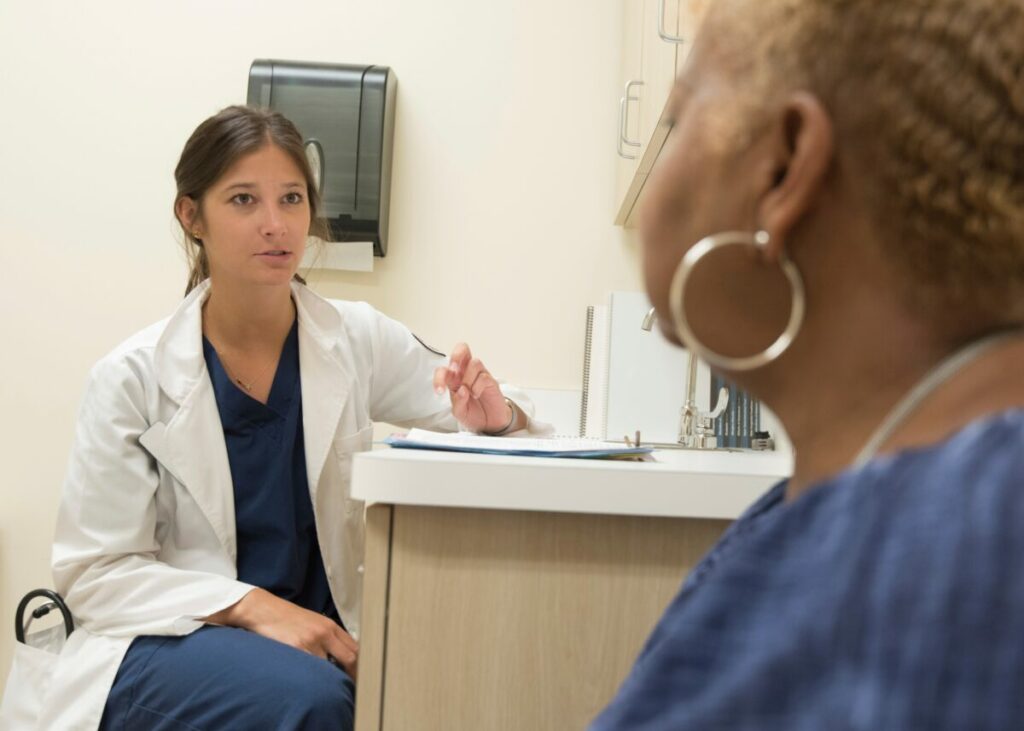
For some women, seeing a female doctor brings a sense of ease. But new research shows that it could also reduce their risk of death.
A recent study published in the “Annals of Internal Medicine” showed a mortality rate for senior women of 8.15% when receiving care under a female doctor, compared to 8.38% when treated by a male doctor. Researchers reached this conclusion after analyzing data of 97,500 male and female patients, ages 65 and over, all under the care of women physicians.
The international team behind the study also noted that women were the main beneficiaries of this trend. Indeed, “patients have lower mortality and readmission rates when treated by female physicians, and the benefit of receiving treatments from female physicians is larger for female patients than for male patients,” researchers wrote in their conclusion.
They added that eliminating the percentage gap could save the lives of 5,000 each year, NBC News reported.
However, the gap between male and female physicians remains sizable, with roughly 68,400 male and 50,000 female physicians working in family medicine and general practices throughout the U.S., per data from Statista. And while more women are becoming doctors, the Association of American Colleges found that pay gaps as wide as $110,000 are leading to higher rates of burnout for prospective female physicians.
The study did not examine why women patients preferred female doctors – but other research points to possible reasons. A 2020 study published in the “National Library of Medicine,” for example, found that female physicians have different communication styles with women patients, which foster more patient-centered experiences. The same study also indicates that patients believe female doctors to be better listeners with a better understanding of their issues.
This is especially true for Black women, who statistically prefer seeing a Black obstetrician due to fear of discrimination – and dying during pregnancy and labor.
For many women, having a female doctor also provides a sense of safety. In fact, fear concerning sexual abuse at the hands of a physician is one of the most common reasons why women seek out a female doctor, according to The Law Firm of Tamara N. Holder.
Experts agree that supporting and encouraging future female doctors is in everyone’s best interest. As Dr. Ashish Jha, dean of the Brown University School of Public Health, told NBC News: Women “tend to be better at communication, listening to patients, speaking openly. Patients report that communication is better. You put these things together, and you can understand why there are small but important differences.”



